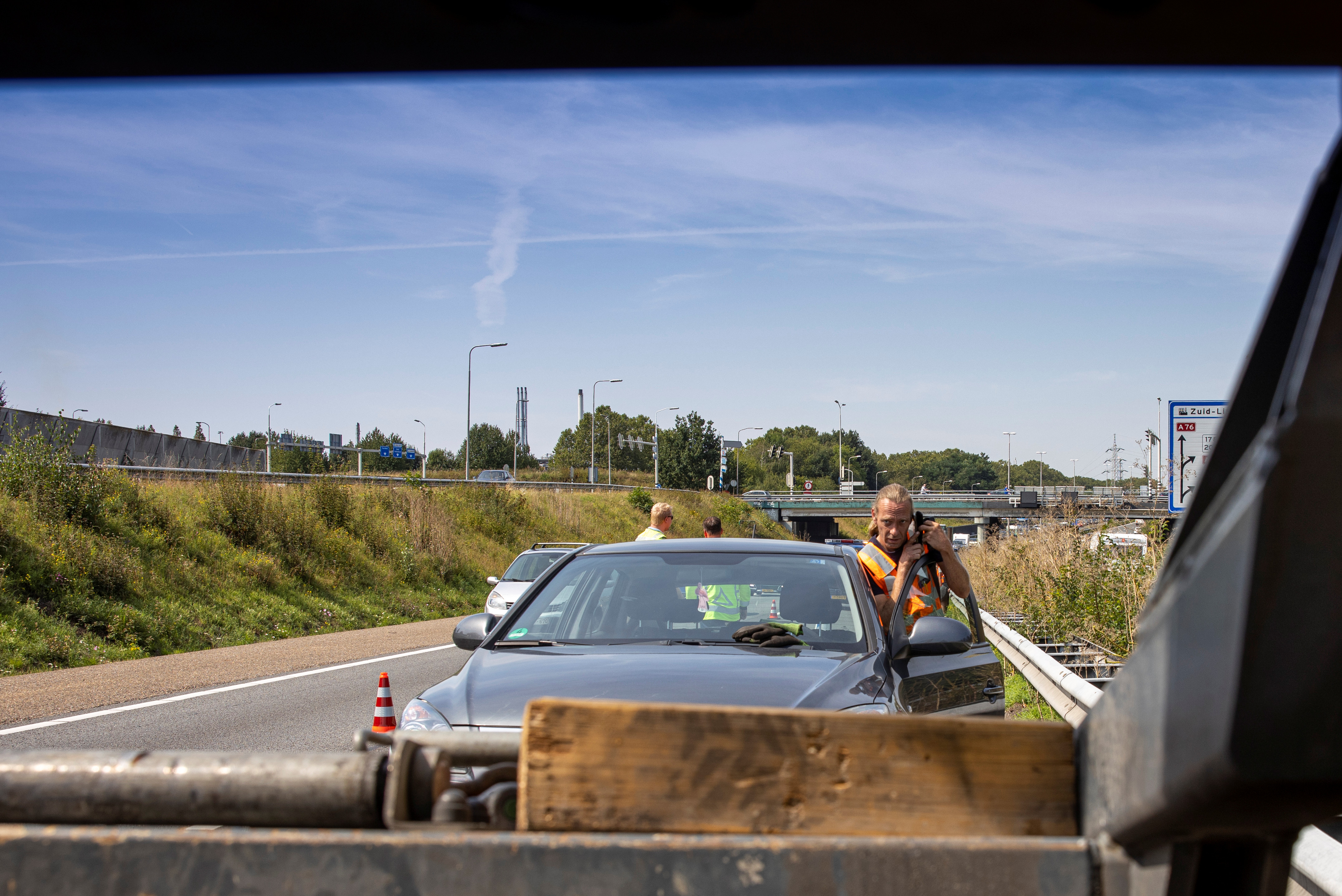The hotter the better
Tuesday, 10 September 2019
The heatwave in the last few days of August led to a doubling in the number of breakdown recovery call-outs on motorways, but had hardly any impact on the response times achieved by IM recovery operators. On 23 August, Rijkswaterstaat announced that the 'heat wave response' protocol rules would be in effect from the following day. This means that all vehicles that have broken down on the motorway have to be removed as quickly as possible. On the four subsequent days, IM recovery operators received in excess of 640 call-outs per day, twice as many as in the previous week. The average response time for breakdown recovery, however, was not even half a minute longer than the week before: 11:44 minutes, compared with 12:11 minutes in the period from 17 - 20 August. This achievement is even more remarkable given the short preparation time - less than one day - and the fact that the peak in demand started on a Saturday.

Bas van Kessel of Van Dongen Berging in action at the Stein intersection in Limburg on 23 August 2019
At weekends IM recovery operators are shorter staffed than during the week. There is less traffic on the roads and, as a result, less emergency work to be performed. Logistics movements are rarely scheduled for the weekend. So being able to cope with sudden peaks in demand on Saturdays and Sundays requires rapid operational adaptation. The figures show that IM recovery operators responded magnificently to this during the heat wave. The table below shows the number of IM call-outs and the average response times for the last sixteen days of August. The table demonstrates that IM recovery operators had to go to great lengths to handle demand on the Saturday in question. Response times were a minute higher than the previous weekend. But this discrepancy was largely made up over the following days.
Average response times in the period from 15 - 31 August 2019
| Date | Day | IM-Reports | Average response time |
|---|---|---|---|
| 15-8-2019 | Thur | 378 | 0:11:38 |
| 16-8-2019 | Fri | 374 | 0:11:35 |
| 17-8-2019 | Sat | 292 | 0:12:22 |
| 18-8-2019 | Sun | 259 | 0:12:27 |
| 19-8-2019 | Mon | 371 | 0:11:57 |
| 20-8-2019 | Tues | 329 | 0:10:21 |
| 21-8-2019 | Wed | 355 | 0:11:19 |
| 22-8-2019 | Thur | 454 | 0:11:52 |
| 23-8-2019 | Fri | 514 | 0:11:17 |
| 24-8-2019 | Sat | 666 | 0:13:14 |
| 25-8-2019 | Sun | 553 | 0:12:53 |
| 26-8-2019 | Mon | 649 | 0:11:08 |
| 27-8-2019 | Tues | 704 | 0:11:37 |
| 28-8-2019 | Wed | 438 | 0:11:15 |
| 29-8-2019 | Thur | 459 | 0:10:58 |
| 30-8-2019 | Fri | 507 | 0:11:39 |
| 31-8-2019 | Sat | 466 | 0:13:29 |
Days at the weekend are highlighted in dark grey. The red lettering indicates the period in which the rules for the 'heat wave response' protocol were applicable.
The 'heat wave response' protocol or Protocol for Extreme Weather (the official term in use in the Netherlands) means that broken down vehicles have to be removed from the motorway as quickly as possible. Under normal circumstances, IM recovery operators respond only to accidents or breakdowns that pose a hazard to traffic. In cold or icy weather, or during a heat wave, it is inadvisable and sometimes even dangerous to allow road users to 'set up camp' on the hard shoulder. That is why Rijkswaterstaat aims to get the vehicles involved towed away to a safe, sheltered place as quickly as possible.